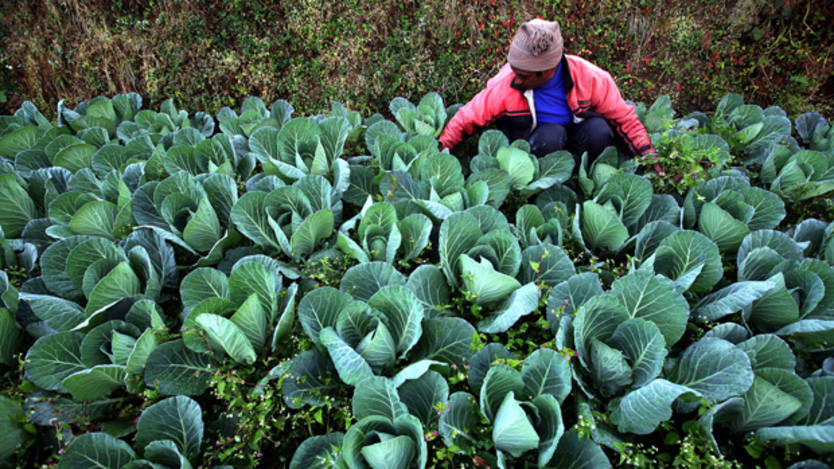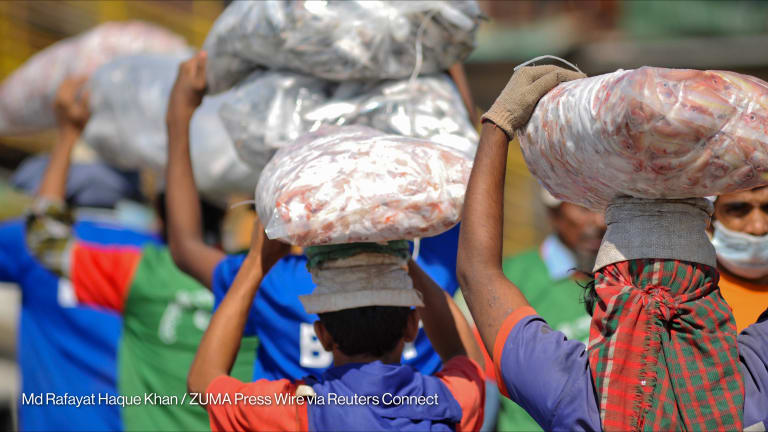
Most experts predict that the global population will exceed 9 billion by 2050. What is less known is that we will have to produce as much food in the next 40 years as we have in the last 8,000 years because each person will have 2.9 times as much income as they do today and will consume about twice as much of everything including food.
As important is that consumption of animal protein, calorie-dense foods and more fresh fruits and vegetables will increase dramatically, especially in developing countries. This shifting demand will place an even greater burden on our finite planet's dwindling resources.
If that picture wasn’t bleak enough, don’t forget the wild card of climate change and weather variability. In some places, farmers no longer know when the rains will start for planting. In other places, drought not only affects one crop, it takes two to three years to recover soil moisture with regular rainfall and up to 10 years if there are two or three dry years in a row.
To meet the increasing needs of everyone in developing and developed countries alike, accounting for a changing climate, we will need to double net food availability.
The bottom line is: Can we do this and still have a living planet? Food production is already the largest single human impact on the planet in the form of habitat and biodiversity loss, deforestation and, all in, greenhouse gas emissions. It also is the largest user of chemicals and the largest source of pollution. Producing food uses twice as much water as all other human activities combined.
So, producing food (or put another way, agricultural sprawl) is the biggest threat to the planet. If we don’t get where and how we produce food and fiber right, we can turn off the lights and go home: There won’t be any biodiversity left to protect. We’ve got to freeze the footprint of food.
#FeedingDev articles:
• 5 ways to tackle climate change and advance food security
• Let's rise to the challenge of global food security
• Global food security: Why it affects us all
The issue is measuring what matters and then managing it to reduce impacts at scale. We can't measure everything and we can't afford to measure just one thing. Our research suggests that six to eight impacts are the most significant across all food commodities. For any crop, it might just be three to five. Start with those.
There is no single strategy that will work as a silver bullet — we need to focus on productivity and efficiency as well as waste and consumption. And we need to measure our impacts in key areas.
Results on the ground may be measured in areas such as the increase in productivity and efficiency as well as reduced waste and post-harvest losses and the impacts of consumption. What is better for one producer may not be for another. And what is better today won’t be tomorrow.
Where we focus is also important. Better producers globally are 100 times more productive than worse ones. Even within a country, producers can be 10 times more efficient than their neighbors. However, the poorest 25 percent of producers cause up to 50 percent of the impacts for any crop but produce only 10 percent of the product. In short, we gain most — in production, income and reduced impacts — by improving the poorest-performing producers than by certifying the best.
Join the conversation at our LinkedIn group!
One of the simplest ways to increase net food availability is to reduce post-harvest and post-consumer food waste. Globally, we waste one of every three calories produced. If we could eliminate waste, we would halve the amount of new food we need to produce by 2050. Waste compounds other global impacts as well. Food waste represents 10 percent of all greenhouse gas emissions and 23 percent of all water used by people.
Doubling net food availability will not be easy, but it is possible. No one can do everything, but everyone can do something. Think about it.
Want to learn more? Check out Feeding Development's campaign site and tweet us using #FeedingDev.
Feeding Development is an online conversation hosted by Devex in partnership with ACDI/VOCA, Chemonics, Fintrac, GAIN, Nestlé and Tetra Tech to reimagine solutions for a food-secure future from seed and soil to a healthy meal.








